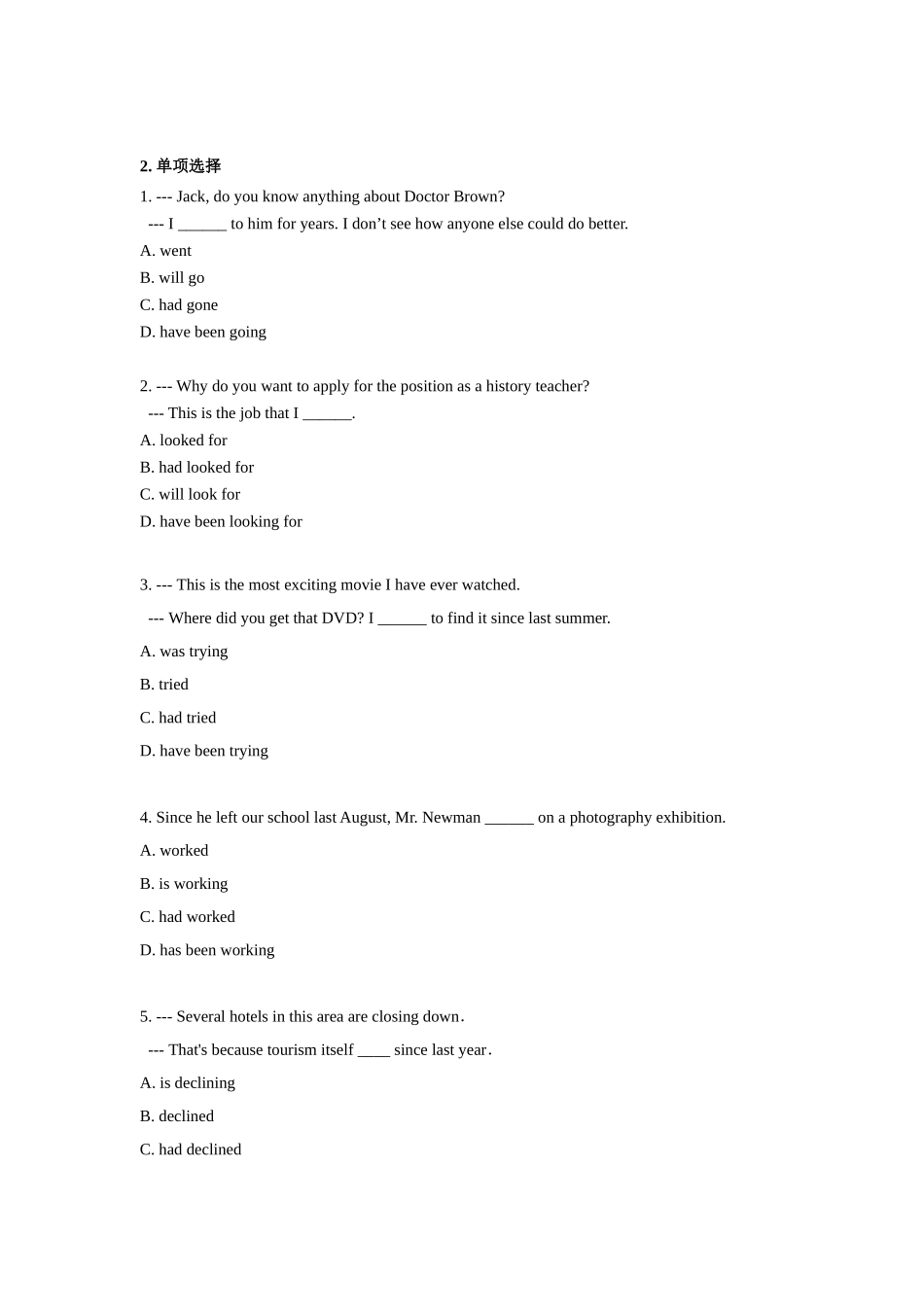现在完成进行时1. 基本结构肯定形式:sb have/has been doing sth否定形式:sb have/has not been doing sth一般疑问句:Have/Has sb been doing sth?特别疑问句:特别疑问词+一般疑问句2. 用法现在完成进行时态多用延续性动词,如 live, learn, lie, stay, sit, wait, stand, rest, study 等,并常和 all the time(一直),this week, this month, all the morning, recently 等状语以及 since 和 for所引导的状语从句或短语连用(since 和 for 连用时,动作常会继续下去)。① 表示从过去某一时刻开始一直持续到现在的动作,并且还将持续下去例:I have been learning English since three years ago. (动作可能会持续下去)② 表示在说话时刻之前刚刚结束的动作 We have been waiting for you for half an hour. (动作不再继续下去了)3. 注意:现在完成时和现在完成进行时的区别现在完成时表示动作已完成,强调结果,而现在完成进行时侧重于动作尚未完成和仍在进行,强调的是动作。例:I have read his latest book. 我已经读过他的新书。(动作已完成) I have been reading his latest book. 我一直在读他的新书。(动作未完成) She has stayed in Beijing for six weeks. 她已在北京呆了六周。(强调动作已完成) She has been staying in Beijing for six weeks. 她在北京呆了有六周了。(强调动作的持续性)说的很抽象是不是,在此给一个秘籍,综合这几年的考题,假如选项中同时出现了现在完成时和现在完成进行时,则可以优先考虑现在完成进行时(通常正常选项为这个)而假如选项的时间状语为表示频率的词,例如:once、twice、xxx times,除外32. She _____ with the symphony orchestra three times this season.A. playedB. has playedC. has been playingD. is playing这道题你选什么呢?答案:C练一练1. 观察下列例句,将序号填入对应用法之后的空白栏中⑴ I received a letter from a friend yesterday. We had not heard from each other since 1990⑵ I hope we'll have got the instructions (说明书) ready before you come tomorrow.⑶ We had hoped to catch the 9:30 train, but we failed to.⑷ I had no sooner returned than he called.⑸ I have b...


